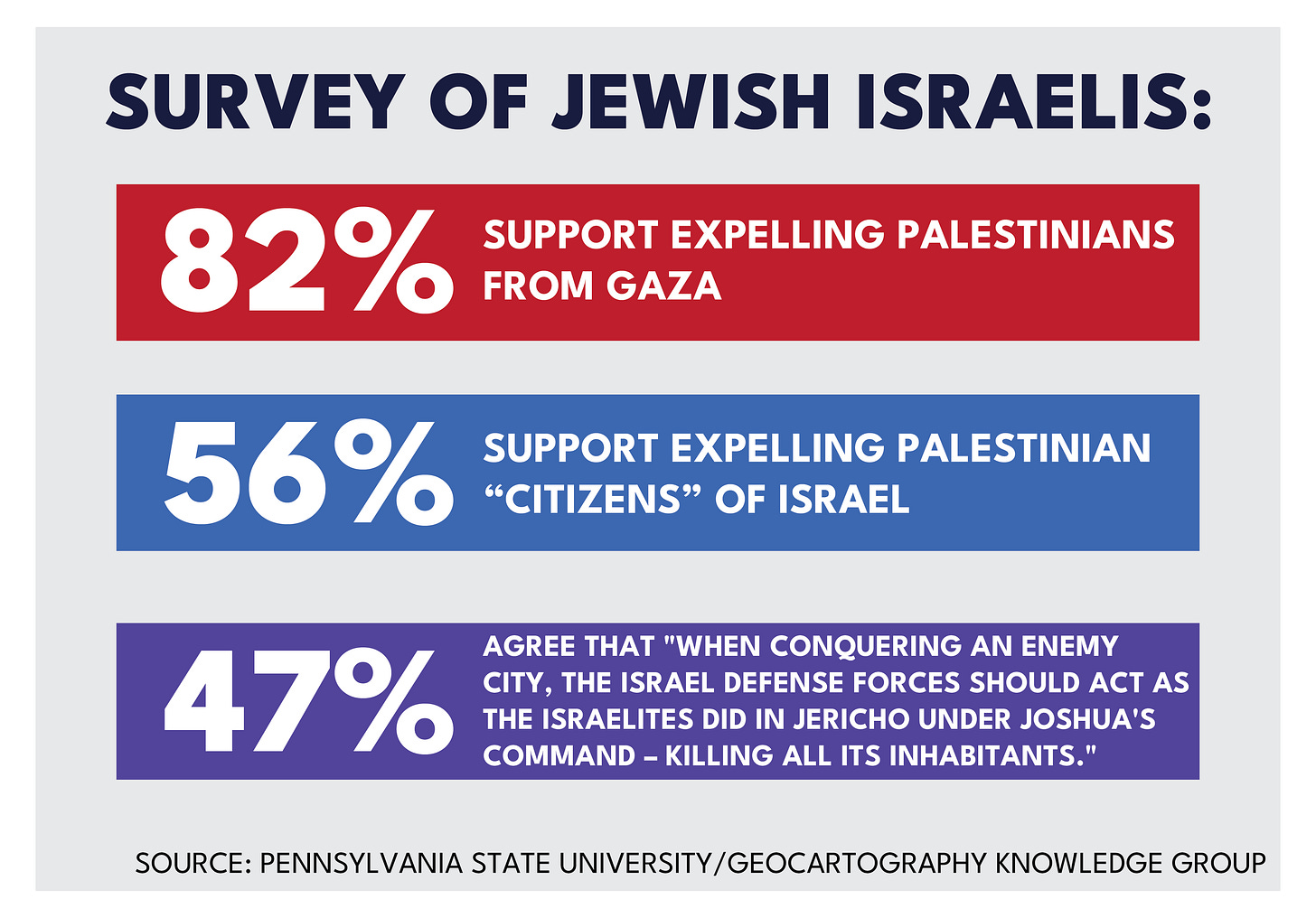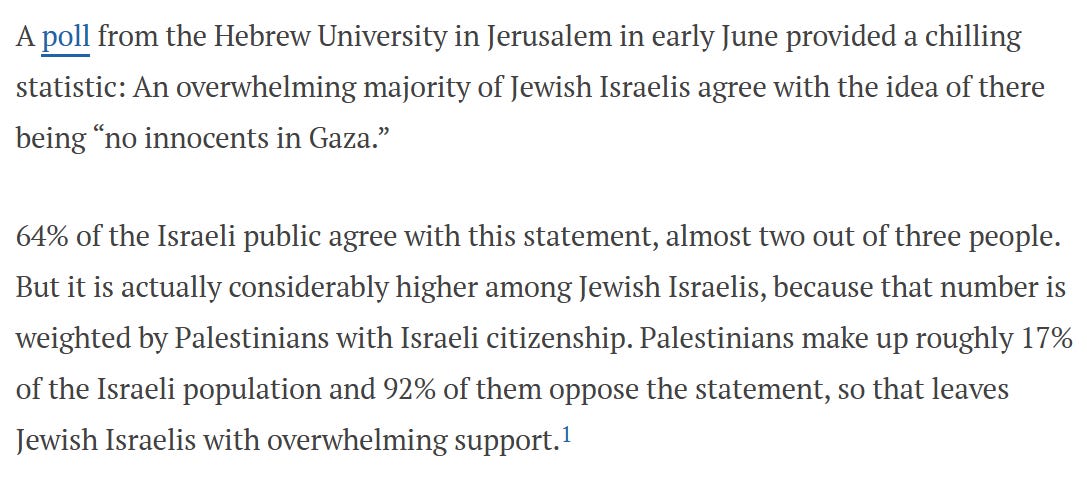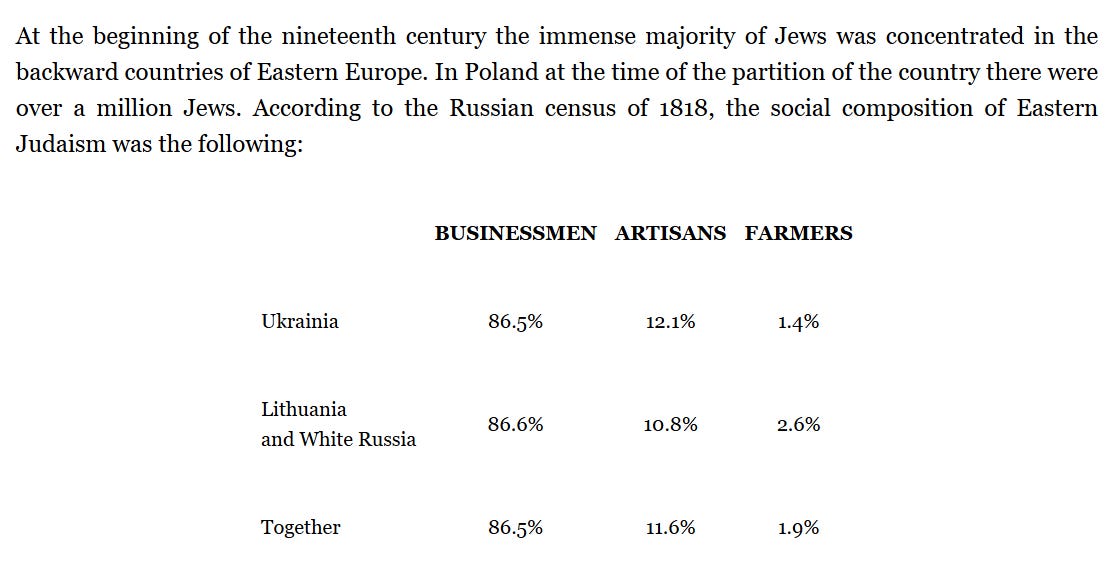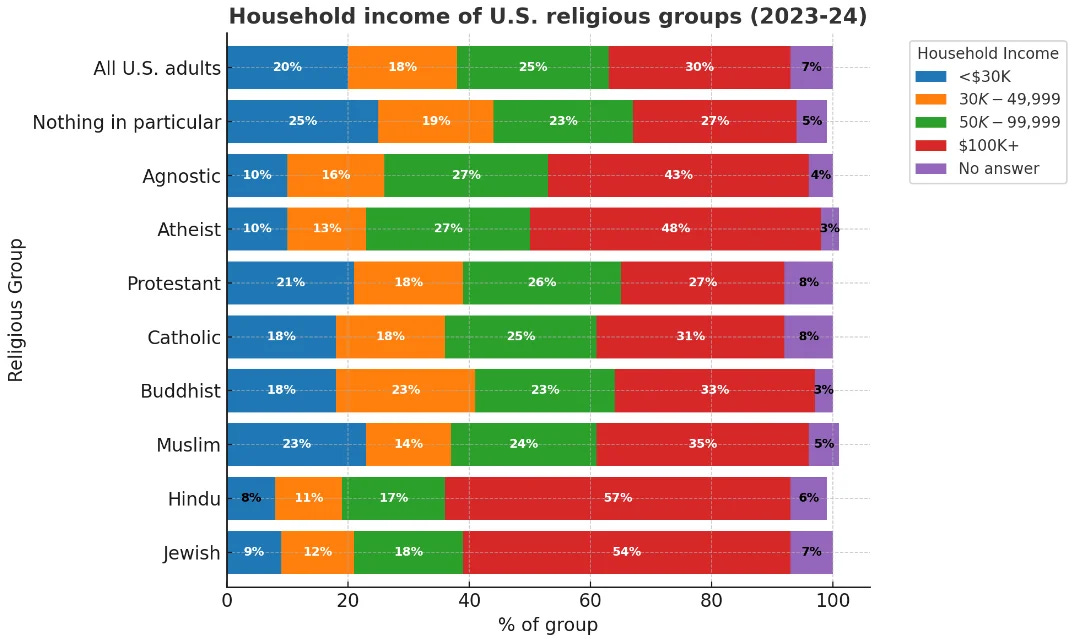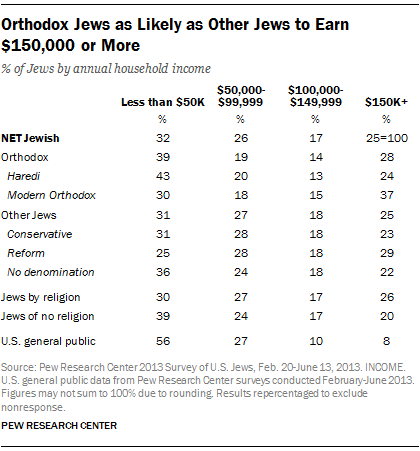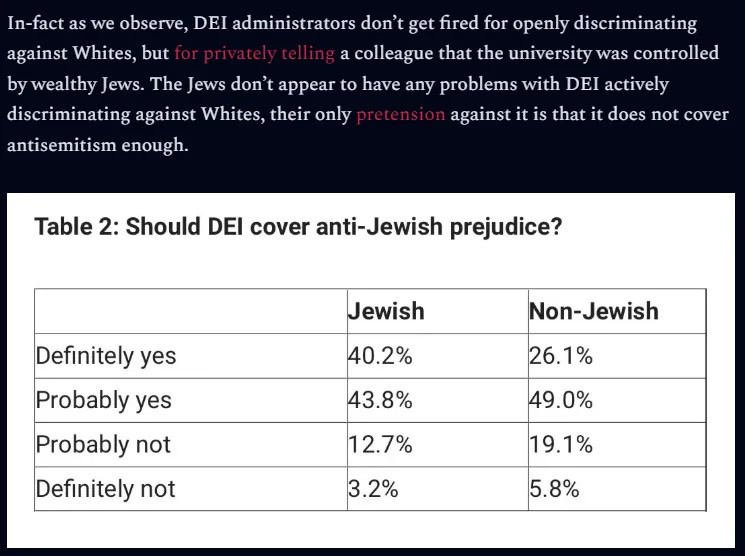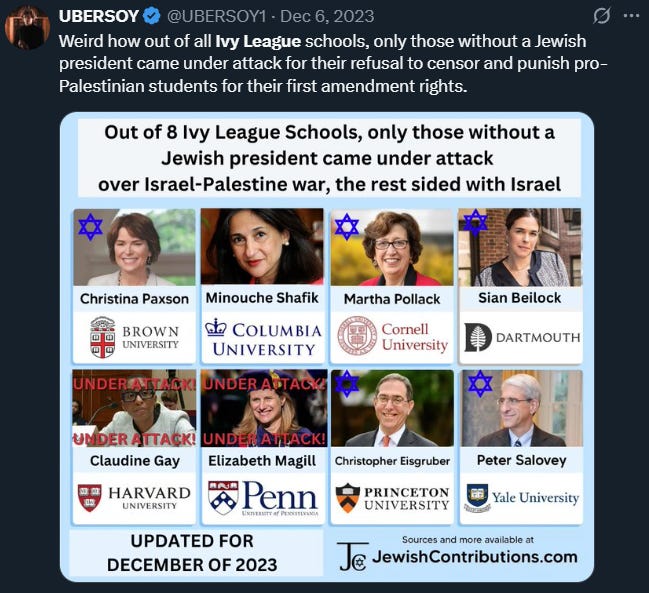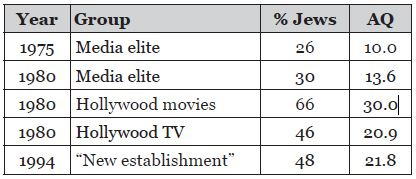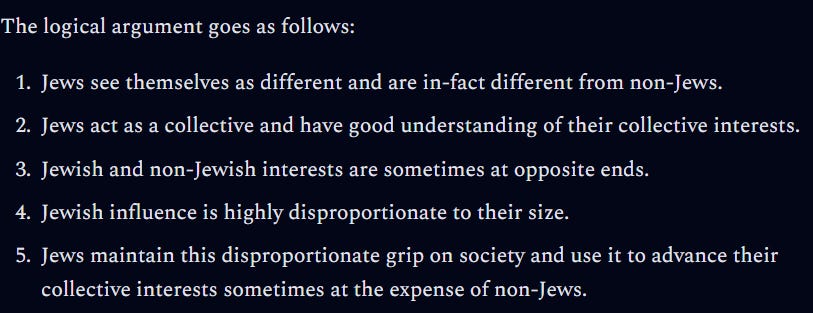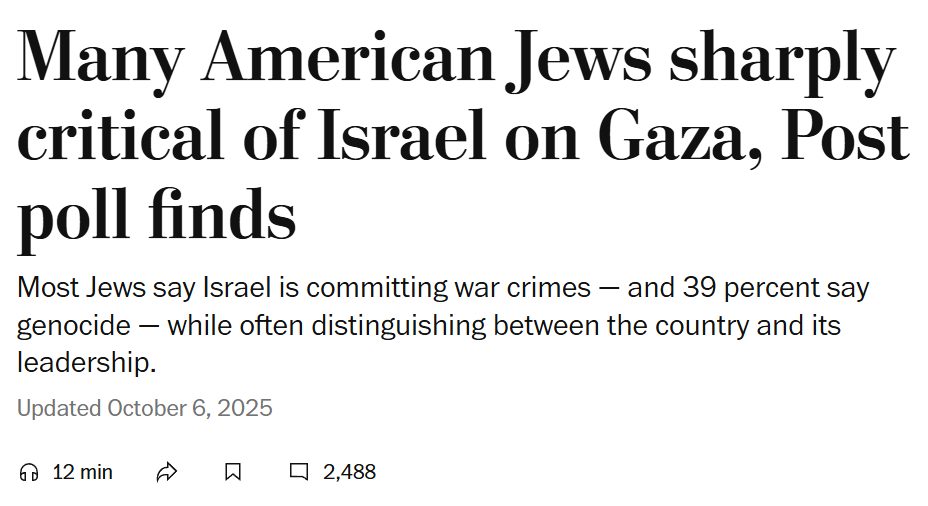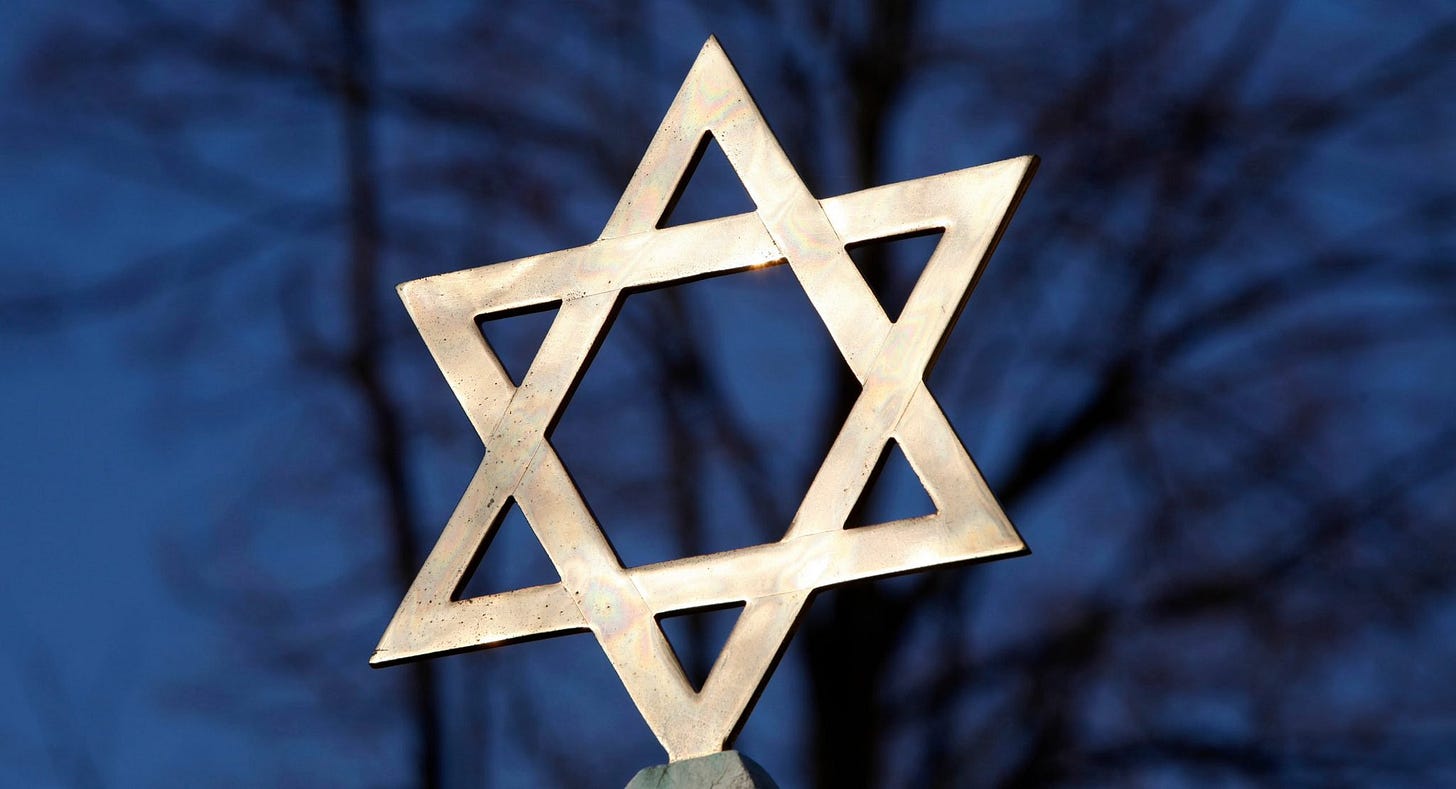Why We Should Talk About The Jews
Here’s why discussing Jewish influence is a moral duty, not an act of ignorant antisemitism.
The internet revolution and the subsequent genocide in Gaza have once again brought global attention to questions surrounding Israel and the Jewish community. For the first time in modern age, people of immense influence begin to question the humanity of those who are openly admitting that they want to commit a genocide.
Information characterizing the Jewish community which was once spread by open antisemitic forces, begins to take upon academic, influencer and mainstream character. Now, more people than ever become aware of Jewish dual loyalty, power, moral hypocrisy and increasing incompatibility of the Jewish state with the West.
This raises questions about the nature of information that is being spread about Jews, as well as the potential transformations such information may bring about. I will dedicate some of my upcoming posts to addressing these questions and examining the persistence of what I call “low-IQ antisemitism,” where I will argue against the widespread proliferation of low-IQ antisemitic and conspiracy-related content online.
For the time being, I want to turn to the ethical and moral obligations that should drive those of higher social stature to participate in the discourse surrounding the Jewish Question. I want to argue for the ethical imperative to engage in this discourse.
I have originally defined the Jewish Question as the acknowledgement of the (1) immense Jewish influence over the polity and (2) its un-democratic and particularistic nature.
But this definition mostly works on the Jewish diaspora. It doesn’t concern the Jewish state itself, which in and of itself is of no lesser global significance than the impact of Jews in Canada, Ukraine or the United States. Furthermore, there is no way of understanding the Jewish state without studying Jewish customs and traditions which are most highly manifested in Israel and not in the diaspora.
Engaging in the Jewish Question can involve the study of the Jewish community or the evidenced based pretensions towards them but could also involve baseless conspiracy theories. It really depends on the topic of discussion falling under the broad JQ umbrella. Critics of the JQ like to lump them all together while its proponents must make a clear line of demarcation if our end goal results in a change in power relations.
Considering that Jews found themselves in conflict with almost every people they have ever interacted with, irrespective of their culture or time, it is imperative to prioritize Jewish innate behavior when explaining social conflict involving Jews and Gentiles or outbursts of antisemitism rather than blaming Gentiles for overreacting as it is commonly done.
Thus, we must get rid ourselves of some of the old assumptions in the literature and reinvent the discipline as the study of Jews and their impact on the world.
The Jewish Question must be understood and treated as another leaflet of the broader discipline of social sciences, similar to other group studies, but much more quantitative and empirical, separating it from critical theory and other less scientifically grounded outgrowths of the social sciences, often of a qualitative and testimonial varieties.
So Why Should We Talk About Jews?
So as already mentioned, the presence of Jews and non-Jews together as the presence of any other two groups in a competition with one another causes conflict. As late as the middle of the XXth century the Jews were looked down upon by Europeans and Arabs and often were systemically discriminated against. Likewise the systemic discrimination by Jews against non-Jews occurs on a daily basis in the Jewish state of Israel.
I have written an extensive article documenting systemic discriminatory practices of the Jewish state against Christians, but the Jewish discrimination against other non-Jews is often even more severe, because the Jews don’t have a reason to bother with optics.
The cessation of systemic antisemitic practices in the United States coincided with the rise of Jews to prominence, cultural revolution of the 1960s and the tone policing practices that Jews have helped to introduce. Cessation of antisemitism in Europe was likely driven almost entirely by the backlash following World War II and the moral reckoning of the Holocaust. Systemic antisemitic practices in the Soviet Union have continued well into the late 1980s, likely because the Slavs were victimized in the Holocaust alongside Jews and so the Slavs did not feel and do not feel any guilt for contributing to it.
Nonetheless, the underlying causes of tension between Jews and Gentiles have not disappeared, as will soon become evident. In time, I expect that Europe, Russia, and the United States will, much like the Arabs and the Israelis, reintroduce certain culturally discriminatory practices toward “the other”, if underlying group issues are not solved or minimized.
In either event, Jewish-Gentile conflict, is a group conflict and thus obeys the universal laws and conditions of group conflict such as the following:
Group demarcation.
Groups having different interests / end goals.
Groups begin to compete with one another for the realization of said interests.
This is most easily expressed in competitive tournaments, in which two clearly opposite groups have two diametrically opposed interests in which only one can be satisfied at the expense of the other.
With people it’s much harder, because group demarcations can be blurry, individuals of a certain group may not feel affinity to it or that many things aren’t actually zero-sum as they are in sports or primitive economies.
Nonetheless, the dynamic of group conflict always manifests within human societies and it is most salient when it involves competition over fixed resources such as land (both within and between countries), political representation and authority.
Group competition in wealth and religion is not as salient these days as it was in the past, given the development of capitalist relations and pluralism, but still occurs.
In any event, the dynamic of group conflict is by no means exclusive to Jews and Gentiles. In-fact, the relations between European/American Gentiles and Jews are much more harmonious presently than are the relations between some European Gentiles with other European Gentiles, like Russians and every other Eastern European neighbor they have with the exception of Belarus. The Jewish-Gentile conflict is simply one conflict among many and the reason I am focusing on it in particular besides my own curiosity is due to the immense power that Jews hold as a group.
Much like the Greeks and the Armenians in the Ottoman Empire, the Chinese in Malaysia, the Germans in Eastern Europe and the Baltics, Ashkenazi Jews manifest outsized influence in any country they find themselves in and much like the Armenians, Greeks, Germans, the Chinese and recently the Indians are resented for their overextension.
The logical argument goes as follows:
Jews see themselves as different and are in-fact different from non-Jews.
Jews act as a collective and have good understanding of their collective interests.
Jewish and non-Jewish interests are sometimes at opposite ends.
Jewish influence is highly disproportionate to their size.
Jews maintain this disproportionate grip on society and use it to advance their collective interests sometimes at the expense of non-Jews.
I also want to clarify that my thesis primarily relates to Jews living in the diaspora. However, recent events have proven that they are often a nuisance irrespective of whether they are a minority like in the diaspora or a majority like in Israel. In-fact, the events after 1947 have proven that Jews are more destructive when they are a majority living in their own national homeland than when they are living as a minority in the diaspora and rocking up Nobel Prizes.
There are two primary explanations for this:
Jews living among themselves further entrenches Jewish cultural norms and traditions that are leading to violence against non-Jews.
Jews living among themselves are not in danger of antisemitism and thus are acting way more aggressively knowing that there won’t be any repercussions.
So if I were to reconstruct my 5 point logical argument to fit better with Israel, I would keep the first three points but change the last ones into:
Jews being equipped with their Holy Texts, the Torah and Talmud, generate and employ theological justification for the dispossession of non-Jews.
The Jewish states actively exploits (USA), bombs (Syria and Iran) or conquers land (Palestine and Syria) from non-Jewish states while mistreating it’s non-Jewish minorities in Israel.
In the operations of the Jewish state, just like in the operation of the Jewish diaspora abroad, the Jews find themselves aggressing upon an existing environment, thereby perpetuating the Jewish-Gentile conflict (aka generating antisemitism).
The basic model of how Jews are employing this strategy in the diaspora is through forming alliances with the host elites against the local (often populist) population.
In Europe, Jews served as middlemen minorities who have jointly exploited the peasant and the working class population without being ones themselves.
In the modern world, the Jews continue to enjoy a privileged lifestyle with an average salary more than twice the national rate, practice social and economic segregation, including forming exclusive scholarships, community centers, food and businesses for themselves as well as providing large safety nets for their own community.
They make alliances with existing institutions and power structures to acquire special rights and privileges that other identity groups lack and then suppress speech critical of their abuse of power.
Quite recently another Jewish lobbying organization has accused Microsoft of allowing “antisemitism to fester” due to their refusal to establish a Jewish-only DEI program that would provide “very real professional benefits and advantages” owed to Jews on the basis that they are an ethnic group and not just a religion.
For as long as Jews maintain an astronomical presence in our institutions like in the Ivy Leagues they will use their position to enact laws that are beneficial to them, like suppressing speech critical of Israel, deport pro-Palestinian protestors, further liberalize immigration laws and provide ethnic Jews with more special privileges.
Btw, now six out of eight Ivy League presidents are Jewish.
Two years through the Gaza genocide, while the negative views of American Gentiles towards Israel have risen, with Jews, as the Hill reports, everything is pretty much the same:
A national survey earlier this year found that 72 percent of American Jews hold a favorable view of Israel. Another poll shows that Jews are almost universally supportive of Israel — a mere 5 percent of Jews “say they are not supporters of the Jewish state.” Polling has found that 85 percent of young Jews “believe that Israel has a right to exist as a Jewish state,” and that 70 percent of American Jews “believe anti-Zionism is antisemitic by definition.”
Rather than indicate a Jewish community prepared to see Israel vanish, these numbers reflect a forceful opposition to anti-Zionism.
The actions of local Jewish communities provide even more gripping evidence. When elected officials or organizations have taken positions that threaten Israel’s security or undermine its legitimacy, large and diverse swaths of their local Jewish communities have objected. The examples are numerous.
The article proceeds to recount numerous instances of the Jewish community organizing against politicians perceived as sympathetic to the Palestinian cause.
Obviously, this doesn’t just happen on the question of Israel, although presently it is the most salient political question in the United States. The Jewish political elites lean way to the left than the general population (where they are a minority but of course not where they are a majority), and thus are able to successfully transform a culture into something more hospitable to them and less hospitable to the Gentiles.
There is a profound clash of values between Jewish and Gentile elites in America, a topic that Sean Last explored in much greater detail.
Due to their oversized cultural influence, many Jews have often tried to convince Gentiles that they don’t have any ethnic interests at all or that they don’t even exist as a group like they are doing right now to the Palestinians. The Jewish community was instrumental in ending White only immigration laws in the United States and the fall of the White Rule in South Africa
Any ethnic question for an elite minority reduces to two points: they hold distinct loyalties and values, and their power inevitably advances those against the majority’s, whether consciously or not. Even differing values alone, such as a liberal elite in a conservative nation, causes conflict. With Jews however, it’s not just values but also loyalty and most importantly the scale of their influence.
In one of Banania’s posts post October 7th, he grapples with the fact that Jews are a pretty powerful group and that this can’t solely be explained by their intelligence:
they were 15 of the top 25 individual donors as of September. That year wasn’t much of an outlier. In 2014, a third of the top 50 political contributors were also Jewish. I haven’t seen any numbers on megadonors to elite universities, but recent events indicate that they might be comparable.
The fact that Jews can, depending on the year, make up a third to over half of the biggest donors to political causes can’t be explained by intelligence or economic success alone.
He explains this by saying that in addition to being highly intelligent, Jews are supposedly also “highly interested in politics” and are even multiple standard deviations higher in political interests than Gentiles, but then cites data like this:
Moreover, the data makes it clear that as far as 2020 is concerned, Jews are generally far more participatory compared to members of other faiths; while over 40% of Jews post political material on social media, only 30% of Christians have done the same.
To me this doesn’t support a super-political Jewish mindset and thus can be explained by their higher intelligence because intelligent people tend to also be highly political. What can’t be explained by higher intelligence is that Jews are more successful in politics and social media than they are in higher-g loaded professions like science or intellectual competition that is an Asian-exclusive club nowadays.
To me this just seems like another strategic calculation on behalf of Jews to invest in politics, rather than a natural expression of their abilities. Jewish donors backing the Republicans more than the Democrats in the 2024 election further proves this point.
Furthermore, you don’t see that many Jews in banking anymore, probably because the banks have lost all of their value and if you really want to maximize elite control you move into the donor class, education and social control technologies like Palantir, TikTok and OpenAI.
For as long as these conditions are still present, it is a moral duty for people of higher standing to raise concern over the state affairs as it is. This is almost like another Civil Rights era. Seriously. The extent of Jewish abuse of power should unironically trigger a new constitutional amendment.
The Jews and the Zionists are rapidly losing their non-Jewish allies, because they either can’t take the American-supported genocide anymore or are sick of being talked down to or even treated as subhuman.
Just consider how many famous former-Zionist Conservative figures have left the pro-Israeli cause:
Thomas Massie
Marjorie Taylor Greene
Matt Gaetz
Tucker Carlson
Candace Owens
Megyn Kelly
Alex Jones
Steve Bannon
Charlie Kirk (he wasn’t killed for it btw)
Nick Fuentes
Speaking of Nick Fuentes, here is him expressing this sentiment perfectly:
In-fact, those who are familiar with the Nick Fuentes Origin Story know that he was kicked out of all Conservative Youth organizations precisely because he couldn’t understand how hardcore support for the Jewish state squares up with individualism and America First.
Conclusion.
Fundamentally Jews enjoy a privileged life in the universalist West, while also harboring a special connection to their particularist ethnostate that they are preventing non-Jews from entering and that’s a problem that should enough mobilize people.
Likewise, these conversations are also good for Jews assuming they wish to minimize antisemitism by addressing the issues causing it head-on and not mentally shut down and terrorize those who dare to bring up the issues stemming out of the Jewish community.
It is better to solve problems through dialogue and self-reflection rather than wait until the Gentiles show you the door. And it is better to live in a functional society in which conflict is minimized rather than live in one in which one group is constantly mistreating and dehumanizing the other (and I am not specifying which group does it and to whom).
Enough Jews have assimilated into Gentiles overtime or respect Gentiles without assimilating. Many Jews are also outspoken against Jewish supremacy and Israel and it is also important to refrain from CRT/Woke tactics that blame all White people for “being privileged” or participating in the supposed White supremacy.
These conversations will undeniably contain good amount of grievances towards Jews, but it doesn’t mean that we should sound like a woke Shaniqua bitching about Whitey being successful in business or selling them to slavery. This is not a race war, but a social correction for decades of Jewish community being out of any semblance of control.
Knowing about the Jewish Haskalah, Hellenistic Judaism and the recent trends in the American Jewish community, Jews are capable of reform, if they are pressured. We can’t expect Gentiles to be constantly accommodating Jews forever and receive little reciprocity in return. If Diaspora Jews want to live in the West, they need to respect those among whom they live and not constantly try to change the landscape for their own benefit.
I don’t know how accurate is this poll that says 39% of American Jews believe that Israel is committing a genocide, given it is in contradiction of many high-level polls like Pew Research but it certainly gives hope that this situation can be managed, though it requires far more effort from Jews than from Gentiles.


